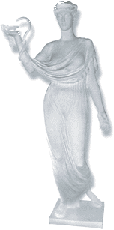

Ministry of Public Health and Social Development of RF
Russian Academy of Medical Sciences
Siberian Branch of Russian Academy of Medical Sciences
Siberian Branch of Russian Academy of Sciences
Medical Polar Fund “Science”
The Northern Forum



|
||

|
International Union for Circumpolar Health Ministry of Public Health and Social Development of RF Russian Academy of Medical Sciences Siberian Branch of Russian Academy of Medical Sciences Siberian Branch of Russian Academy of Sciences Medical Polar Fund “Science” The Northern Forum |
 
|
 |
Child health. Women`s health
Objective: To verify what months are unfavourable, if any, for conceptions in the region with the severe continental climate.
Design: A retrospective observational population based study.
Methods. Data were extracted from medical records of obstetric, delivery and paediatric hospitals in Novosibirsk (1976–1980), Norilsk (Taimir peninsula, 1978–1980) and Mirny (western Yakutia, 1979–1980). Two latter towns were considered together as a northern setting. Edwards’ (1961) and Hewitt et al.’s (1971) methods were used to test seasonality. The total numbers of pregnancies and live births were taken as denominators while determining the chi-square parameter. An infant mortality rate under 1 year of age was calculated per 1000 live births. Overall, 5085 and 4787 pregnant women’s records were analysed in Novosibirsk and the northern region, respectively.
Results. In Novosibirsk, the monthly distribution of the time of conception for preterm births (maximum, late August), maternal pyelonephritis (late August) and infant deaths under 1 year of age (late June) displayed significant seasonal patterns (Edwards’ test, p<0.01). In the northern towns, annual rhythms of the number of conceptions for gestoses (maximum, late August), maternal anemia (mid-May) and stillbirths (mid-June) tended to be significant (p<0.1). Numbers of cases with the threat to spontaneous miscarriage analysed by the time of conception did not show a significant seasonality in both settings.
Conclusion: In the Siberian North and in Novosibirsk as well, the polar day and the summer months are unfavourable periods for conceiving in respect of pregnancy outcome and obstetric complications. According to the hypothesis of “seasonal preovulatory overripeness ovopathy” [1] these results can be attributed to the prolonged follicular phase of a menstrual cycle that occurs more often at the beginning and at the end of summer with some peculiarities in Siberia [2]. A fertilization of the overripened ovum leads to a conceptopathology, fetopathy and thus has an adverse effect on the maternal organism [3].
References: [1] P. Jongbloet. Med. Hypotheses. 1995, 45, 441–8; [2] V. Melnikov. J. Epidemiol. Community Health. 2004, 58, 528; [3] P. Jongbloet. Coll. Anthropol. 1992, 16, 99–107.
Note. Abstracts are published in author's edition
|
Mail to webmaster
Main page |
© 1996-2005, Siberian Branch of Russian Academy of Sciences, Novosibirsk
Last update: 06-Jul-2012 (11:52:05)